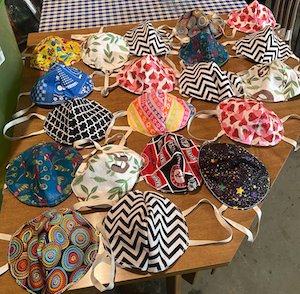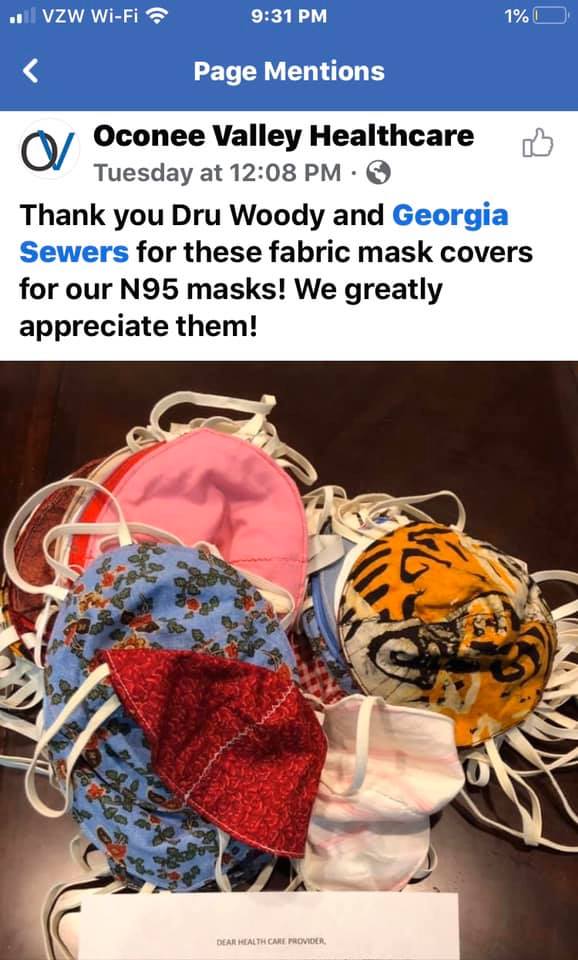How the Georgia Sewers came to the rescue
Georgia CORE

While finishing up a project in Albany – just as the pandemic began to take hold of the southwest Georgia community – Susan Cremering could sense how the healthcare system was under siege with the short supply of masks. “How can I help?” Susan asked herself. If she could mobilize volunteers to sew masks, she thought, she felt confident she could coordinate a process for getting them where they are needed because of her understanding of the healthcare system.
After getting a concept approved by key healthcare officials, Susan got the go-ahead from the Georgia Hospital Association to increase capacity for producing home sewn masks. Phoebe Putney in Albany was the initial focus since the need there was the greatest at the time. She recruited a friend to build out the volunteer network and another to serve as a technical advisor for the sewers. A Facebook page was built for communications, and the Unified Healthcare for the Rural and Underserved offered to serve as the fiscal agent so expenses would be tax deductible. The nonprofit also connected the group with a donor for fabric and launched a social media campaign on behalf of the Georgia Sewers. 
As they began their operation, the growing band of volunteers also simultaneously served a separate role keeping Phoebe’s own local sewing operation supplied with elastic, thread, sewing machine needles and more elastic.
“Elastic is giving toilet paper a good run for the COVID-19 shortage,” said Susan. “It has been unbelievable!” The group innovated with elastic headbands donated from CVS, pony tail holders, and every other type of elastic they could get their hands on.
Nearly 400 volunteers in 58 counties have been cutting out fabric and elastic, handling administrative duties and of course, sewing. Most of the Georgia Sewers are outside of metro Atlanta, but are collaborating with another volunteer group that is sewing to handle the needs of Atlanta are hospitals.
“We have sewers in their 70s and a group of 30 sewers in which only one person speaks English,” added Susan.
And their work has paid off. At the time of this publishing, the Georgia Sewers have distributed nearly 30,000 masks with just over 400 requests remaining. More than 80 percent of the masks are going to hospitals, nursing homes and federally qualified health centers, with smaller quantities going to PCPs, hospices and other healthcare facilities.
With an amazing outpouring of compassion and a few dedicated and organized leaders, the Georgia Sewers have come to the rescue of our healthcare workers, and indeed, all the residents of Georgia.